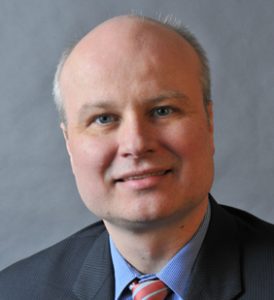How do some researchers get a leg up in the hyper-competitive world of grant funding?
One important source of funds, the National Institute on Aging, only has the financial resources to support 15 percent of grant applications. And that’s an improvement from the odds of success in other recent years.
Most applications to elite agencies like NIA are of high quality, so simply presenting a good idea usually is not enough. Researchers can improve their chances of funding success by developing some preliminary evidence a project hypothesis has merit.
That’s the point behind the Gerontology Institute’s Pilot Grant program, launched in 2016. The awards support researchers in the initial stages of their work, seed funding for promising projects.
“We asked ourselves, ‘How can we help faculty and fellows get over the funding hurdle?,’” explained Len Fishman, director of the institute at the McCormack Graduate School. “Pilot grants allow our researchers to purchase data or the services of a statistician, conduct preliminary surveys or evaluations, all of which can make an application more compelling. Sometimes, what a faculty member needs most is time to concentrate on the project.” Funds may also be used for a course buy-out.
The institute recently awarded its third pilot grant to professor Christian Weller for research that aims to understand the long-term financial consequences of unexpected caregiving events for men and women. The project specifically seeks to uncover whether differences in the likelihood of being a caregiver and the nature of that care can explain part of the growing gender wealth gap.
The institute’s $10,000 pilot grant will allow Weller and his research assistant to fully develop the proposal, communicate with funding agencies, coordinate between project participants, organize preliminary reviews, explore additional funding opportunities and handle the logistics of application submission.
The pilot grant program is available to researchers across the UMass Boston campus. Weller is a professor at McCormack’s Department of Public Policy and Public Affairs.
The first pilot grant was awarded to professors Kathrin Boerner (Gerontology) and Jason Rodriquez (Sociology) to evaluate whether Medical Orders for Life-Sustaining Treatment are actually being implemented in nursing homes. The funding allowed them to conduct a limited analysis (two nursing homes) to lay the foundation for a larger comprehensive study.
The second grant went to professors Jennifer Gaudet Hefele (Gerontology) and Pamela Nadash (Gerontology), to survey a limited number of Massachusetts nursing homes to learn how many conduct consumer satisfaction surveys and what they do with the information. The results will be used in an application to examine the use of consumer satisfaction surveys across the country.
The two most important pilot grant review criteria are the topic’s significance and the likelihood that the research enabled by the grant will lead to external funding. Funding for the pilot grants, in turn, comes from the indirect costs recovered by the institute from grants awarded by external funders such as NIA and foundations. For pilot grant application guidelines, contact Fishman at len.fishman@umb.edu.


Leave a Reply